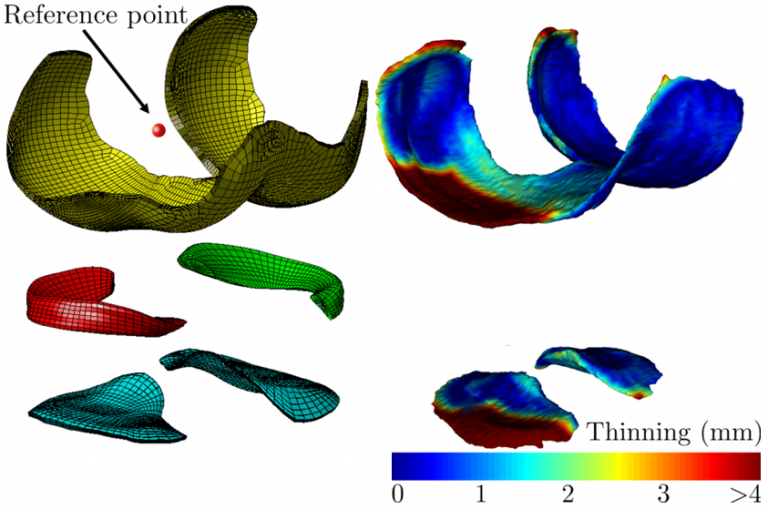IHE Colloquium: Virtual Cartilage - Toward Translational Applications
18 July 2019, 1:00 pm–2:00 pm

With Dr David Pierce (University of Connecticut)
Event Information
Open to
- All
Organiser
-
UCL Institute of Healthcare Engineering
Location
-
G0845: Roberts BuildingTorrington PlaceLondonWC1E 7JEUnited Kingdom
We discuss experimental, computational, and translational advances toward the development of a multidisciplinary analysis framework for cartilage – a virtual cartilage – combining medical imaging, image analysis, and experimental and computational mechanics. In the future, evolving virtual cartilage will help clarify relationships between the biology and physics of cartilage function in health and disease. Virtual cartilage could also advance understanding of patient-specific pathological changes due to biomechanical factors, improve clinical diagnostics and therapies, and enable new methods for non-invasive diagnosis and pre-/post-operative decision making.
About the Speaker
David M. Pierce
Associate Professor, Departments of Mechanical Engineering/Biomedical Engineering/Mathematics at University of Connecticut
Dr Pierce received the B.S. degree from the University of Minnesota, Minneapolis, and the M.S. and PhD degrees (with S.D. Sheppard) from Stanford University, CA, all in mechanical engineering. Additionally, he received a Ph.D.-Minor degree in mathematics from Stanford University and completed his Habilitation (Venia Legendi) in experimental and computational biomechanics (with G.A. Holzapfel) at the Graz University of Technology in Austria. The driving interest of Dr Pierce’s research is to understand and predict the mechanics of soft tissues and engineering materials. His current work employs theoretical, computational, and experimental tools to explore the interplay of form and function in cartilage, specifically the multiscale and multi-phase mechanics and how these evolve in health, damage, and disease. To this end, Dr Pierce’s Interdisciplinary Mechanics Laboratory (imLab, im.engr.uconn.edu) establishes novel experimental protocols and builds validated simulation tools that inform our understanding of the mechanics of cartilage, the complex progression of osteoarthritis, and clinical perspectives on causes, treatments, and possible preventions. His other work encompasses characterization and modelling of arteries and intraluminal thrombi and, in collaboration with A.M. Fitzgerald & Associates, failure prediction and design tools for Si-based MEMS devices.
 Close
Close

